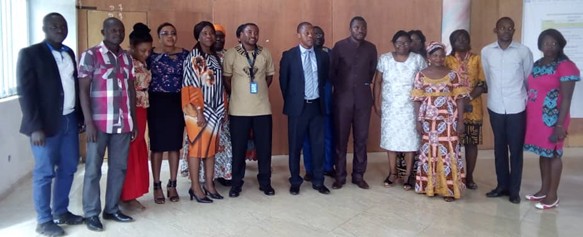UNWOMEN STRENGTHENS THE CAPACITIES OF FOCAL POINTS IN CHARGE OF MONITORING LOCAL AND SECTORAL RESPONSES FOR THE COLLECTION AND ANALYSIS OF GENDER-SENSITIVE DATA
Date:
From 19 to 21 June 2019 ,20 focal points of the National AIDS Control Committee (NACC) in charge of monitoring the local and sectoral responses of the Regional Technical Groups took part in Mbalmayo at the capacity building workshop on the collection and analysis of gender sensitive data organized by UN Women. The aim of the training was to improve programmatic performance in the monitoring, collection and analysis of gender-sensitive data

In his opening address, the Permanent Secretary of the NACC, Jean BOSCO ELAT NFETAM highlighted the importance of the theme in the context of the feminization of the HIV/AIDS epidemic among adolescent girls and young women; This aspect, which was not included in the monitoring, will make it possible to better address gender dimensions in the response.
During the three days, participants were able to assimilate, through presentations and practical exercises, the concepts of gender, HIV, sexual and reproductive health, the links between gender-based violence, harmful traditional practices and HIV, the integration of gender into statistical production, the matrix of indicators for the 2018-2022 National Strategic Plan community response and the reporting framework, taking into account sensitive gender data.
At the end of the workshop, Ms YIMGUEP Florentine, Focal Point of the Central Region, on behalf of all the Focal Points, thanked UN Women and the CNLS for this capacity building training that will enable them to deliver better results, justify the choice that has been made on them. They intend to make a difference, in particular by now integrating the gender component into their activities and will ensure that the actors with whom they work in the field will also take into account the gender aspect.
Based on its mandate, the United Nations Entity for Gender Equality and Empowerment of Women (UN Women) is committed to supporting the Cameroonian government in achieving the MDGs5 while ensuring that gender is taken into account in monitoring progress on the other 16 sustainable development goals (SDGs). To achieve this result, UN Women implements the Making Every Women and Girl Count (women Count) Program, which aims to support the production and use of gender statistics for better monitoring of the SDGs at the national and local levels.